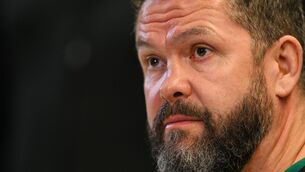How the world has changed since 1987
WHEN the Irish squad left for New Zealand last week, they did so having completed months of intense preparation with every tiny detail catered for. Declan Kidney’s players and management enjoy the full backing and financial support of the IRFU in their quest for ultimate glory at the World Cup. But it wasn’t always that way.
When the amateur equivalent of the current squad entered unchartered waters for the inaugural tournament 24 years ago, the IRFU were less than enthusiastic about the concept. Preparations for the competition suffered as a consequence. The real pity was that Ireland had a decent squad of players at the time, with the bulk of the team that won the Five Nations championship two years earlier still on board.















